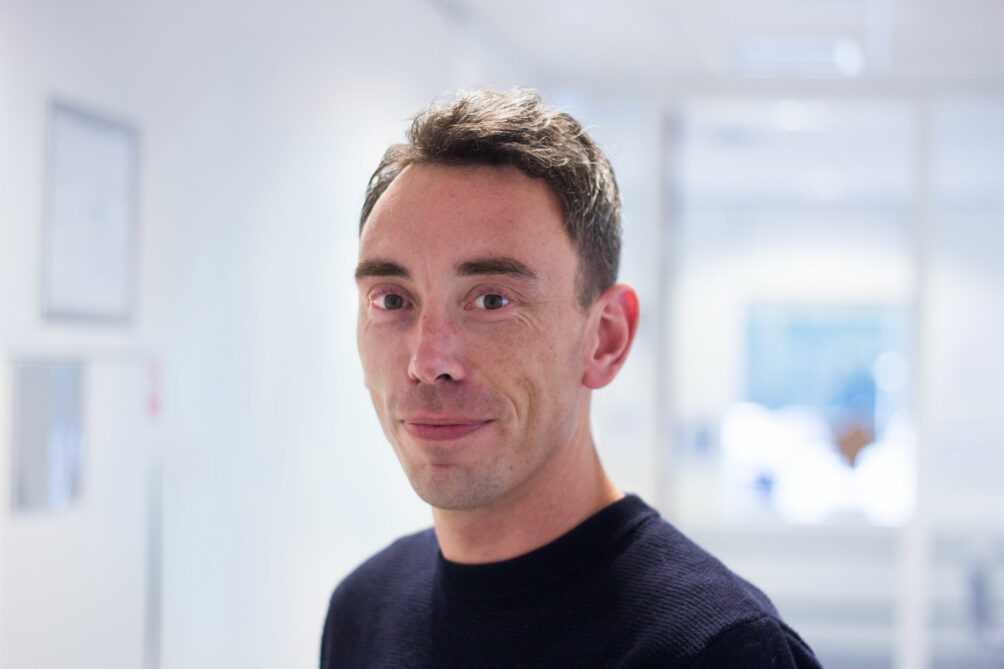
About Nori Health
- Founders: Roeland Pater, Dandyano Zentveld, Lisa Booth and Christian Vogel
- Founded in: 2017
- Employees: 4
- Money raised: -
- Ultimate goal: On a mission to close the 30% disparity in terms of quality of life between chronically ill patients and healthy people.
Around 5 million people around the world suffer from chronic gastrointestinal diseases, such as Crohn’s disease and ulcerative colitis. They often experience fatigue and other physical and psychological ailments. The AI-driven digital coach from Nori Health is an innovative digital healthcare tool that offers evidence-based therapies to help these patients regain control of their daily lives. Founder Roeland Pater talks about it in this instalment of Start-up of the day.
How did you come up with the idea to set up Nori Health?
“The basis for Nori stemmed from my personal situation. It so happens that I have Crohn’s disease. When I was diagnosed, I tried to find out what the disease entailed exactly and what I could do about it. I suffered from symptoms such as extreme fatigue, problems related to my social life and mental issues. At the hospital, I was told that these symptoms were part of the disease and that I had to accept them. I then thought, there has to be another way.”
“Before starting Nori, I used to work at SkinVision, an Amsterdam-based company focused on the detection of skin cancer. I saw the company, at that time still a start-up, undergo tremendous growth and after that, I had the courage to start my own business.”

How does the AI-driven coach work exactly?
“We offer patients a therapy program that lasts six weeks. Through that, they can access the app and the digital coach every day. As such, Nori is not a human being but rather an AI-driven digital coach. Patients can have chats with Nori during which they can share their experiences, such as any frustrations and challenges. Nori then gives them actionable tips based on this information, drawing on scientific information.”
What are you actually trying to accomplish?
“What we see is that patients who spend every day trying to improve their lives are a lot healthier and consequently are less of a burden on the healthcare system. We try to mobilize passive patients who are being held back due to fatigue and pain, by giving them practical tips that they can use in their daily lives.”

How are patients finding the conversations with the coach?
From the outset, we have been surprised by how open people are to Nori. Lots of users say that they like talking to someone who doesn’t immediately have an opinion. Moreover, the digital coach has tons of time to listen to a personal story, unlike a doctor who has to move on to the next patient after a couple of minutes. During the digital therapy, patients often share some of their most personal stories. Even ones they are ashamed of. Take, for example, anxiety about not being able to care for your children properly. While Nori does not pass judgment, it is capable of expressing understanding, by saying, for example, ”You are not alone. Lots of other people are dealing with this too.”
Where are you now?
“We are in the process of conducting clinical studies at several hospitals, the Radboud Hospital in Nijmegen and the Elisabeth-TweeSteden Hospital in Tilburg. A group of 50 patients in total will use our app until the end of the summer. After that, we will compile the preliminary results and look at what our impact is. As soon as the pilot is completed, we will proceed to the next phase. Then hundreds of patients will start using Nori. We’ll be busy with that until the end of the year.”
Do you think healthcare will rely more heavily on digital solutions like Nori in future?
“I’m predicting that it will, yes. You see that healthcare is becoming more and more expensive. Not just in the Netherlands, but right across Europe. Healthcare workers are also under enormous pressure. For example, I have noticed that I only see my doctor about my illness once every two years. The rest is done by appointments over the phone. There is less and less time for personal contact. Something has to be done about this and I think that a combination of traditional healthcare and digital healthcare can provide a solution.”
What is your biggest challenge right now?
“Healthcare is a pretty tough market to get a foot in the door. It takes a lot of time to fully develop and test your product on patients and healthcare workers. The biggest challenge over the coming period is to enable as many patients as possible to access our digital solution without having to pay for it. Therefore, we are aiming to have our therapy reimbursed under the basic health insurance scheme.”
Are you going to expand the number of features that digital therapy offers in the future?
“We definitely want to start adding more pathologies over time. There is a lot of overlap between inflammatory diseases, which makes it relatively easy for us to switch gears very quickly. So, in let’s say five years, I hope we can support patients with multiple pathologies and be part of the insured healthcare in the Netherlands, Europe and America.”









